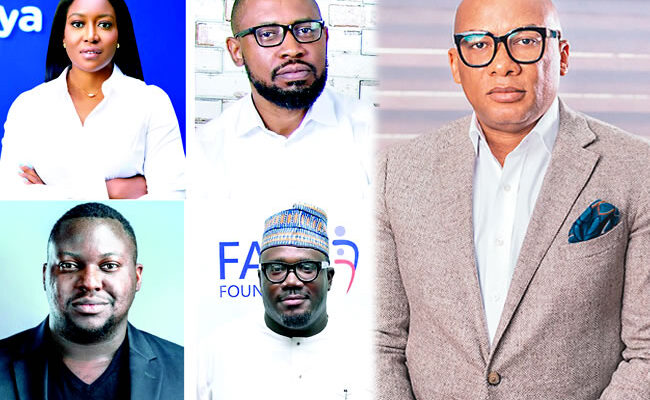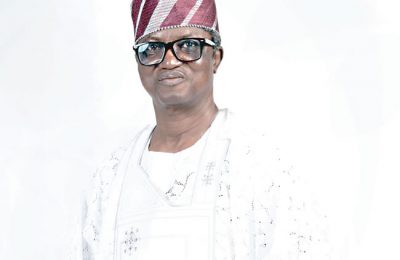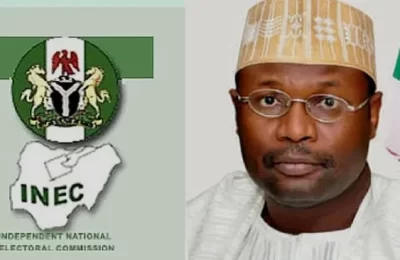By Sulaimon Olanrewaju
Before Lance Armstrong was diagnosed with metastatic testicular cancer in 1996, he had built a reputation as a successful professional cyclist, having won the World Championship in 1993, the Clásica de San Sebastián in 1995, and Tour DuPont both in 1995 and 1996. His victory over cancer and the subsequent establishment of the Lance Armstrong Foundation (now Livestrong Foundation) to assist other cancer survivors conferred on him the image of a global icon. He was hailed for his dexterity as a cyclist and his positivity about life. On his return to cycling in 1998, he continued with his winning streak. Every year from 1998 to 2005, he won the Tour de France title, he also won a bronze medal in the 2000 Summer Olympics, becoming the most successful cyclist ever. He retired from professional cycling in 2005, though he returned briefly in 2009 before his final retirement in 2011.

However, Armstrong’s world came crashing in 2012 after an investigation instituted by the United States Anti-Doping Agency (USADA) found him culpable of using performance-enhancing drugs, and named him as the ringleader of “the most sophisticated, professionalized and successful doping programme that sport has ever seen.” Consequently, he was stripped of all of his achievements from August 1998 onward, including his seven Tour de France titles. He was also banned for life from all sports that follow the World Anti-Doping Code. Sequel to the ban, Armstrong lost US$75 million in one day as sponsors dropped him. Even his charity organization, Livestrong, cut all ties to him.
What took Armstrong to the zenith of his career? His choices. What destroyed him? His choices.
Pre-eminence of choice

Life is a journey in choice making. Every moment, choices are made and the choices make or mar men because every choice has consequences, good or bad. Only a choice can keep a man on a spot, only a choice can make a man slide from a spot, and it is only a choice that can advance a man from his spot to a higher level.
Choices are powerful, they determine whether we are healthy or sick, buoyant or broke, glad or sad, successful or not, celebrated or derided, knowledgeable or ignorant, progressing or retrogressing. Our choices determine the course of our lives.
Choice determines attitude, attitude determines behaviour, behaviour determines output and output determines destiny. When men get their fingers scorched as a result of wrong choices, they blame their destinies. But that is a delusion. As Cassius tells Brutus in Shakespeare’s Julius Caesar, “The fault is not in our stars, but in ourselves, that we are underlings.” So, whether we become giants or we end up as minions or something in between the two is a function of the choices we make.
Factors affecting choices
Most people want to choose right but certain factors come between them and making the right choices.
Ego vs goal
In almost every situation that a choice has to be made, two factors spring up. These are ego and goal. Ego is a person’s feeling of self-importance, self-worth or self-esteem. Ego prods a leader to focus on his needs rather than that of the organization. This results in the personalisation of issues. Personalisation results in a loss of focus because at that point, he is willing to sacrifice corporate good for personal interest. When a leader pushes his personal interest above corporate interest, his choice will likely be at variance with the overall purpose of the organisation he runs. When leaders pander to their own interests, they squander great opportunities to make a difference and later wonder why they are unable to achieve their goals.
Robert Mugabe presided over a country where everything was going wrong, yet he decided to stay on in power at 93 years of age because of his personal interests. He manipulated the electoral process and pocketed the military to hold on to power.
He sacked the former vice-president, Emmerson Mnangagwa, to pave the way for his wife, Grace, to succeed him. As far as Mugabe was concerned, governance was about himself and his interests. Little wonder he was disgraced out of office at the twilight of his life. He had to live the rest of his life in regret due to his selfishness.
When a leader makes his needs his focus, his choice will not be right.
Goal
To prevent ego from getting in the way of making the right choice, the leader has to make corporate goal his focus. When a leader focuses on the corporate goal and makes its attainment his priority, he will be able to make choices that are in tandem with the corporate objectives of his organization. Not only will he deny himself of unnecessary benefit, he will also be able to say no to those who want to take advantage of his position.
Another pair of issues that comes into play when it is time to make a choice is the pair of convenience and excellence.
Convenience
When Jim Rohn wrote “Don’t wish it was easier wish you were better. Don’t wish for less problems wish for more skills. Don’t wish for less challenge wish for more wisdom”, the message he was trying to pass across is that those who want to go far should avoid the easy way out. For the average people, the easy way is the better option. Therefore, average people make convenient choices and as a result never get to see life at its best.
Those who opt for the convenient when it is time to make a choice really trade away the best because of the eagerness to have it their way rather than the hard way. Consequently, not only do they end up making choices that limit the realization of their potential, those choices stunt their growth and rob the world of their utmost contribution.
Between Patrice Evra and Cristiano Ronaldo
Patrice Evra, the former French national football team captain, shared a story of a lunch date with Cristiano Ronaldo, the five-time Ballon d’Or winner.
According to Evra, while he and Ronaldo were playing for Manchester United, the latter invited him over to his house for lunch one day after training. He said though he was tired, he decided to honour the invitation.
Evra said when he got to Ronaldo’s house there was only salad and plain white chicken on the table, so he thought that would be the first course.
Evra said, “We started eating and I was thinking some big meat would be coming after that but there was nothing. He just finished and stood up and started playing with a ball, doing some skills and he said, ‘Let’s do some two-touch.’”
A flabbergasted Evra asked if he could have some more food but Ronaldo declined insisting that they should practice.
“We started playing two-touch. After that he said we should go to the pool to swim. I said, ‘Cristiano, why have we come here, have we come here because we have a game tomorrow, or just for lunch?”
Evra said he thought he was going to have lunch not knowing that Ronaldo would turn that to another training session. So, he counseled anyone who might get a Ronaldo invitation for lunch not to think twice before turning same down because there would not be any lunch.
But that marks the difference between Ronaldo and Evra as well as their destinies. While Evra is a successful footballer in his own right, having won a number of trophies with Manchester United Football Club and Juventus, but his accomplishments pale into almost nothingness when compared with Ronaldo’s and this is principally because while Evra thrills himself with good food but spares himself the pain of strenuous training, Ronaldo denies himself the luxury of sumptuous meals but subjects himself to the pain of hard training. This also explains why Evra, who started from Monaco and left for Manchester United, from where he moved to Juventus (all top-rated clubs) ended up at West Ham United. On the other hand, Ronaldo left Manchester United for Real Madrid in Spain and in 2018, when he was 33 years of age, signed a €100million four-year contract with Juventus. He later left Juventus to return to Manchester United from where he bagged a $75million a year contract with Al Nassr of Saudi Arabia where he has scored eight goals in seven matches despite being 37 years old. .
Excellence
Excellence is always looking for the best possible way to perform a task. Excellence is taking the time to cross all the t’s and dot all the i’s. It is refusing to settle for anything but the best. It is shunning compromise and adhering to the highest standards. Excellence is sparing no effort to achieve set goals. It is also pushing the envelope to find new ways of performing a task. Excellence is saying, like the Carthaginian commander, Hannibal, when he was told by his generals that it was impossible to cross the Alps into Italy by elephant during the Second Punic War, that, “I will either find a way or make one.”
Excellence does not come cheap, it is exacting, it is tasking, it stretches, but it also makes us better, stronger and wiser. Excellence, when it becomes a pattern, is highly rewarded. Hence, those who prefer excellence to convenience never end up in the gutter of life.
How to make the right choice every time
To consistently make the right choice, the following steps will be of help.
Be continuously conscious of the whole picture
Organisations are run on vision, which is the encapsulation of their aspirations. Individuals should also have goals which tell the story of their current situation and their desired destination. This should be borne in mind every waking moment of their lives. This should determine what they embrace and what they refrain from, where they go and where they avoid. If you are conscious of the whole picture, then you know that every choice you make at any point ultimately affects your goals and aspirations. The question to ask as a guide to making the right choice is: Will this choice take us to our envisioned future?
Align your choices with your values
Your values are what you stand for and what you hold dear. Your values create your world and determine others’ perception of you. So, when you make a choice, ensure that the choice is in alignment with your value. The questions to ask are: Does this choice represent what I stand for? Is this choice in consonance with who I am? How will this choice affect my reputation? Answering these questions will help in making the right choice every time.
Consider the effects of not making the choice
To be sure you are making the right choice; ask yourself what would happen if you did not make the choice you are contemplating. Would you be better or worse off without the choice? What is the best thing that could happen with the choice? What is the worst that could happen without the choice? The analysis will help in making the appropriate choice.
Consider the effect of the choice on others
Making the right choice often entails taking into cognizance the effect of the choice on others. The world is racing towards the dumping of the use of fossil fuels because of their effect on the environment. Fossil fuels release large quantities of sulphur dioxide, nitrogen oxides and carbon dioxide which have contributed to global warming and its effects on the ozone layer.
Follow through to the end
Having a good intention does not amount to making a good choice. Taking a few steps in the right direction is not the same as making a right choice. The hallmark of a good choice is the result that it produces. Until the desired result is produced, the right choice has not been made.
In 1979, Nigeria conceived the construction of the Ajaokuta Steel Complex based on two factors. The first was the understanding that the nation’s hope of industrialisation would be a mirage without a functional steel industry. The second was to make Nigeria one of the leading steel producing countries in the world and position it to earn revenue from it. So, the government of General Olusegun Obasanjo pursued the project with gusto and scheduled it for completion in 1986 at the cost of $650million. But 44 years after, and with over $5billion spent, the steel complex lies prostrate, though at a point it reached 99 per cent completion.
Embedded in the project is a thermal power plant with the capacity to generate 110 megawatts of electricity. But with the abandonment of the main project, the fate of the plant was already decided.
However, the effect of the non-completion of the Ajaokuta project exceeds the money spent on it and the failure of the country to improve its electricity supply. The neglect of the project has also been responsible for the depletion of the nation’s resources as a total of N2.1 trillion was spent on the importation of steel between 1986 and 2012.
Nigeria had a very good intention of having a local industrial revolution through the Ajaokuta Steel Mill project. But her inability to follow through made the project fall through.
Last line
He cannot lead well who fails to make right choices.
READ ALSO FROM NIGERIAN TRIBUNE







